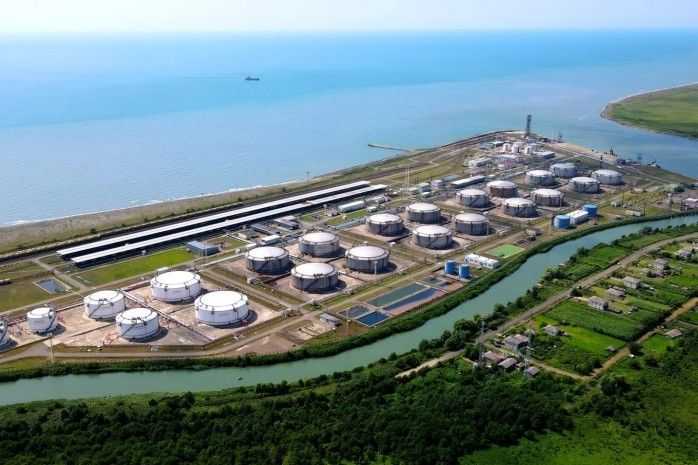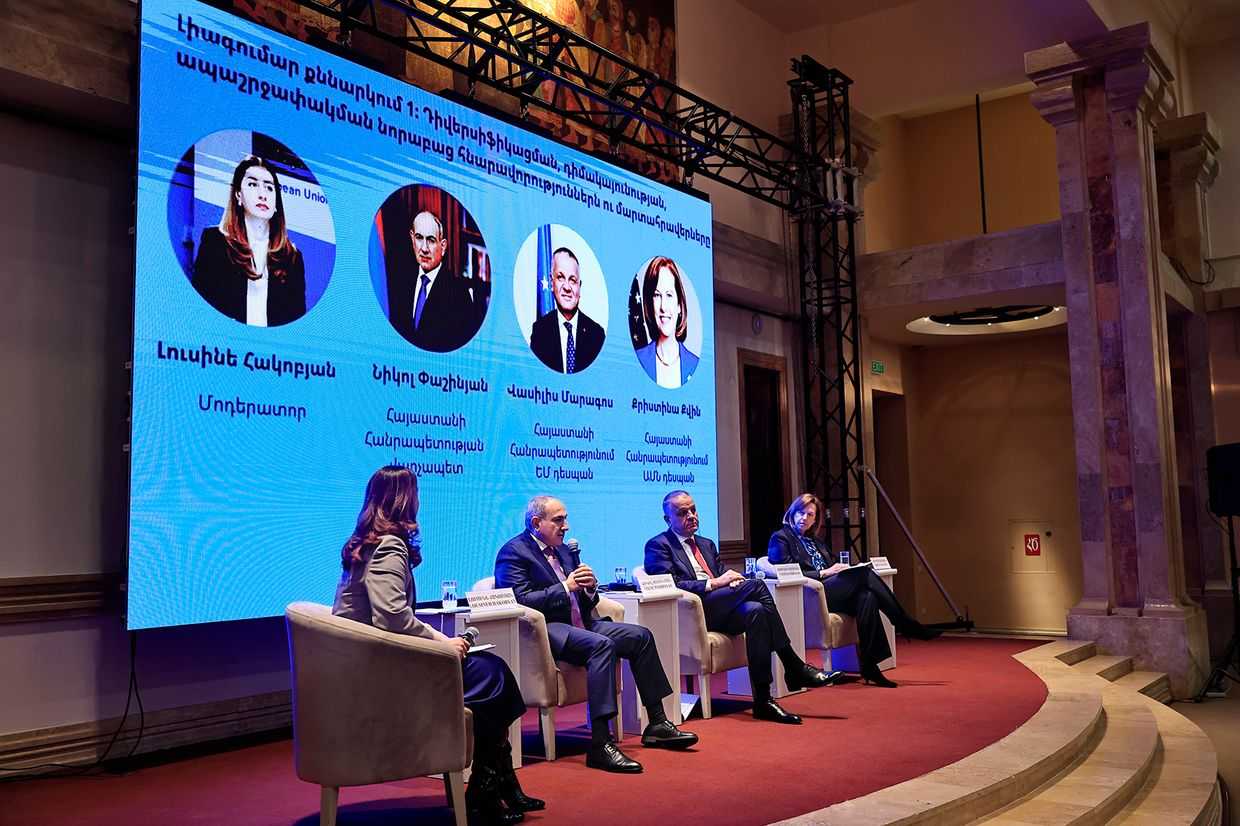
In defiance of Georgia’s government, President Salome Zurabishvili has begun meeting with European leaders in support of Georgia’s bid for EU membership candidacy. The government earlier refused her requests to travel to a series of official meetings outside Georgia.
On Thursday, Zurabishvili met with German President Frank-Walter Steinmeier, a day after her administration announced that the visit would take place.
In a statement published on Wednesday, Georgia’s government administration stated that Zurabishvili’s application to visit Germany was rejected on 3 August, in accordance with the relevant constitutional article.
It added that requests for official visits to Ukraine, Switzerland, Poland, Belgium, Denmark, the United Arab Emirates, Bulgaria, Czechia, and Israel between August and December were also refused.
No specific reason was given for the refusals, but the statement emphasised that Georgia’s President exercises representative powers in foreign relations ‘only with the consent of the Government of Georgia’, and that Georgia’s government was responsible for determining the country’s implementation of foreign policy.
In June 2022, Ukraine and Moldova received EU candidate status while Georgia’s application was declined, with the country instead given 12 conditions to meet before its application could be reexamined. The European Union is expected to announce by the end of the year whether it believes Georgia has met those conditions.
‘Common sense is on the side of the president’
A number of opposition figures were swift to condemn the government’s actions.
Aleksandre Rakviashvili, an MP from the opposition Girchi party, told reporters that the government’s position was ‘incomprehensible’.
‘Common sense is on the side of the president. We know her position, that she supports European integration. Her meetings will definitely help this, and it is not clear why the Prime Minister does not give his consent, isn’t this consent a formality?!’
‘I think the president is doing the right thing by going against the government’, added Rakviashvili. ‘Of course, order and laws exist, but common sense is still superior.’
Salome Samadashvili, a member of the Lelo party, described the government’s action as ‘unconstitutional’, and claimed that the ruling Georgian Dream party was acting on ‘an order from Moscow’ to prevent the country from receiving EU candidate status.
She added that Georgia could now only gain candidate status if the European Union made a political decision to grant it despite the recommendations being unfulfilled.
‘Consequently, the lobbying of the president and any representative of the state for this political decision is of decisive importance’, said Samadashvili.
Members of the ruling party were, however, swift to reaffirm the government’s decision and condemn Zurabishvili’s actions, with some threatening her with impeachment.
Party chair Irakli Kobakhidze accused Zurabishvili of ‘[opposing] the country’s interests in European integration’.
‘She said that Georgia did not deserve candidate status last year, and […] this year that the reforms provided for in the EU documents had only been formally implemented, so it appears that in her opinion, Georgia does not deserve candidate status this year either’, said Kobakhidze.
Both Kobakhidze and Mamuka Mdinaradze, the chair of Georgian Dream’s parliamentary faction, also asserted that Zurabishvili was going against Georgia’s constitution by proceeding with official visits despite the government withholding permission.
‘She is violating [the constitution], which is a very serious fact, and we cannot leave it without a response’, said Kobakhidze, adding that one potential response was impeachment.
Mdinaradze similarly implied that the government’s decision was based on Zurabishvili’s ‘harmful’ statements in parliament regarding Georgia’s European integration.
On 31 March, Zurabishvili criticised the government during her annual report to parliament, claiming that Georgia had been refused candidate status as a result of the government’s actions and rhetoric. Her comments were immediately condemned by leading members of the ruling party.
On Saturday, Dmitry Medvedev, the former President of Russia and current Deputy Chair of Russia’s Security Council, described Georgia’s government as ‘pragmatic’, while noting that there remained ‘rabid’, ‘crazy’, and ‘strange’ figures amongst Georgia’s politics.
‘Take the current president of Georgia, I don’t know if she speaks Georgian or not, she is a French woman with some Italian references who categorically opposes the development of her country’s economy.’
‘But thank God, now, as I understand it, such politicians do not play a leading role there, especially since the current role of the president in Georgia, given that it is now a parliamentary republic, is minimal’, he said.
Zurabishvili has previously had conflicts with the ruling party regarding their refusal of her official visits.
Speaking at a plenary session of parliament in March 2022, the president stated that the government had refused to allow her to pursue working visits to Paris, Brussels, Berlin, and Warsaw the previous month.
[Read on OC Media: Georgian Government ‘barred’ president from official visits to European capitals]









